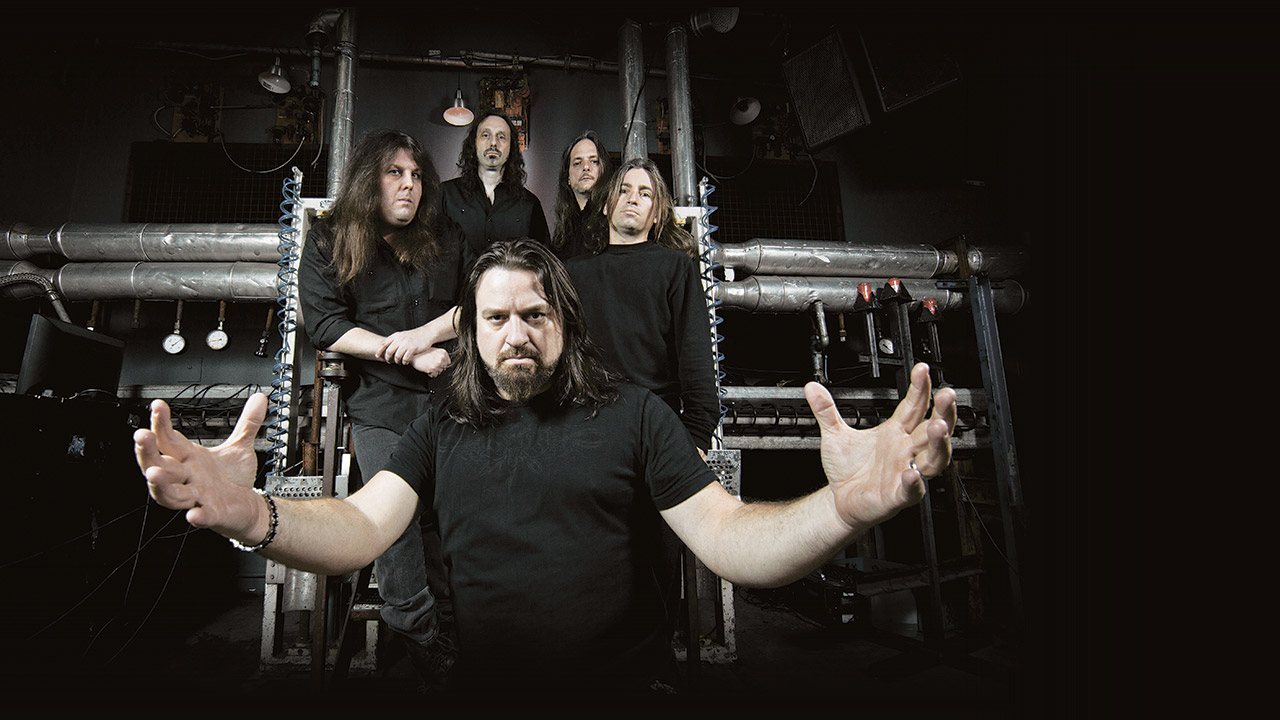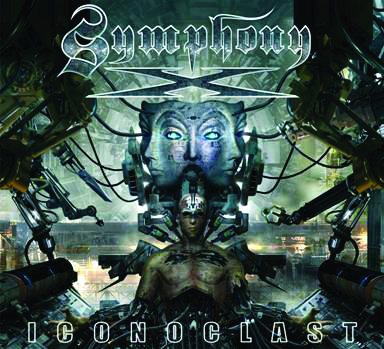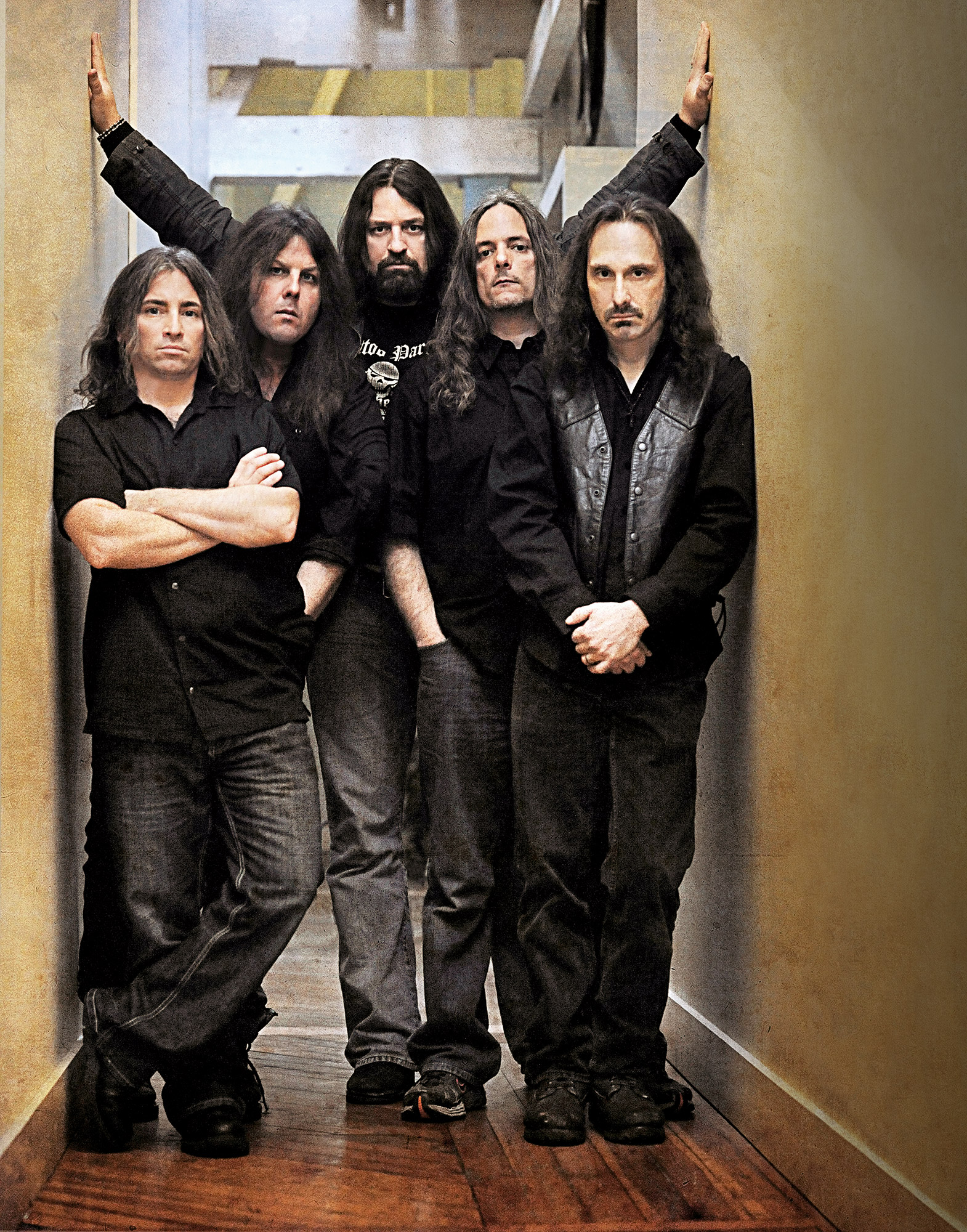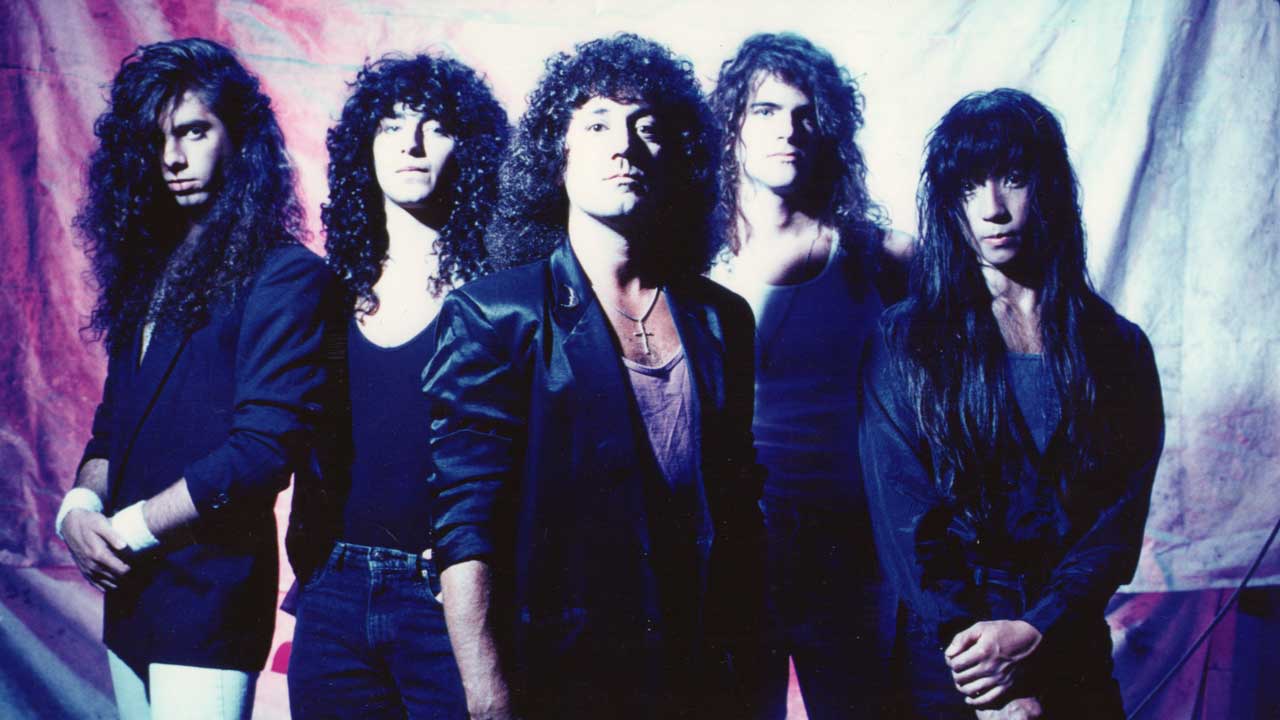"We don’t cheese out with a bunch of noodling." Symphony X and Iconoclast
Singer Russell Allen and guitarist Michael Romeo talk us through Symphony X's eighth studio album Iconoclast

Prolific isn’t a word that can be used to describe Symphony X in terms of album releases. Yet they’re one of only a handful of bands whose patient fans retain an unfaltering allegiance despite the band often leaving up to five years between albums. Returning with Iconoclast – their first album since 2007’s Paradise Lost – the band at least acknowledge that they’re in a privileged position.
“Yeah, the most amazing thing about Symphony X is how we’re able to resurrect our career every time. That to me is like raising the dead. In fact, that should be the name of the band – Raising The Dead,” laughs frontman Russell Allen with endearing honesty. "We have a great fan base who are very loyal and they hang in there with
us for as long as they can and then we also seem to be able to win over new audiences. We talked about trying to keep the time down between albums but we know that these records are going to be around long after we’ve gone. Symphony X doesn’t just make a record just to go out and stay in the game.”

That openly declared perfectionist streak – which warrants that the band refuse to unleash an album until they’re wholly satisfied – is an admirable one, but not without risk. It’s not unrealistic to suggest that Symphony X would have a far greater profile if they adopted a speedier studio routine. It’s a tactic that also intensifies their in-studio stress as they pressure themselves to record something that they feel matches their self-imposed high standards.
“Yeah, I think it’s really difficult as we do lose momentum and we’d probably be a much bigger band if we’d managed to write in much shorter periods of time, but it’s just never worked out that way,” concurs Allen. “It really does create a pretty intense pressure cooker, especially when you’re getting down to the wire on it. This album was supposed to be out the beginning of this year but everything took longer than we planned. So shit like that happens and it’s not anyone’s fault. We’re just hoping that the album has enough gas to get everybody back into us. It’s also really good for us that there’s a new generation who want to get into playing music and that the whole three chord, Nirvana-era is over.”
“The other thing about this record was that it seemed to be taking a little longer than it should and then we realised that we’d not really timed the amount of material,” adds guitarist Michael Romeo. “We were doing the lyrics and it was like ,‘what the hell? It’s taking forever. There are so many lyrics’ and we realised there were 84 minutes of music. So I do think that for the amount of material that’s actually there it’s not too bad.”
Perhaps unusually, Symphony X rely on Romeo to solely craft virtually complete demos of the songs which are then presented to the band for their input. When you consider the egos of some musicians – who demand that they put their own musical nuances and signature styles into a band’s sound – it’s an atypical process. Seemingly though, Symphony X have accepted this method and any perception that Romeo is a musical dictator is swiftly dismissed.
“It works pretty well and mostly the music is his,” explains Allen. “With this record, he pretty much had all that nailed down. We’ve been together for so long that we can speak without speaking if you know what I mean. We already know what each of us will play, think or are going to say, so this album was pretty easy in that regard.”
Sign up below to get the latest from Prog, plus exclusive special offers, direct to your inbox!
“I’ll maybe just put down a few riffs and fire out a few MP3’s or maybe Russ or Michael Lepond [bass] would come by, and tell me what they like or don’t like,” says Romeo. “So you kind of get everyone’s input. I’ve been playing with these guys forever, so I know Jason [Rullo]’s style of drumming and [Michael] Pinella’s keyboard playing. I guess these guys trust me. As far as then making into a song and doing the arrangement, I’ll spend a couple of months with that. So usually when I present it to everyone, they are riffs that they’ve already heard and thought were cool.”
The new album continues the trend of heavy, catchy riffs set by its predecessor Paradise Lost, but with the concept behind the album dealing with the dangers of technology, they were keen to add futuristic, industrial touches to the sound as Romeo explains.
“With Paradise Lost we had the choirs and orchestra fitting in with the riffs and a gothic, angels and demons kind of thing,” he says. “With this album, we thought it would be a cool element to have the lyrics and music based around a theme
of technology. So we’d be like goofing around, banging wrenches together, trying to do some sampling to record these mechanical textures and do something a little different. The music’s similar but we are just going more with the riffs and the big choruses and add those subtle industrial elements. We tried to up the ante a little bit and really try to get some cool riffs but at the same time we tried to keep the song coherent and not go overboard.”

Indeed, “going overboard” is something that the band and many of their progressive metal contemporaries have been regularly accused of. Some of their earlier albums have been much maligned due to a perception that they were trying to force countless showpiece solos into a track and using 15 frantic notes when one would do. Is that a criticism which in retrospect they now feel was a fair one?
“I think we got caught up a bit when we were younger of really trying to show what you can do,” admits Allen. “We’ve now matured as musicians and writers, and we made a conscious decision a few records ago that we were going to be complete slaves to the tune. We’re not really into showing off and I don’t need to scream a high note every time. I guess I’m more dramatic and dynamic about it and I’ll pick and choose when the lyric needs to go somewhere. I never really fell into the trap of doing the screamer stuff just for the sake of it. We’re just comfortable in our skin and we all know what we can do. We aren’t about playing things that scream, ‘hey look what I can do’. The only thing we have to prove now is to ourselves as we want to write the best songs that we can. For me it’s a continual growing process and I don’t think I’ll ever stop wanting to learn a new thing, or sing a new song. If you’re not growing, you’re dying. We don’t need to cheese out with a bunch of noodling if the song doesn’t call for it.”
“In the past we tried to, I don’t want to say show off, but sometimes it was like, ‘let’s go crazy with the music sections here’,” concurs Romeo. “Over time you start to refine it. So the last couple of records we’ve tried to make sure that it’s a solid song and there are no parts that feel like they’re dragging. Really just trying to get to the point where we listen back to the song and ask ourselves, ‘Does it kick ass? Is it rocking? Yes or no?’ And if it’s a ‘yes’, then that song’s done. We’re pretty much done with over-analysing stuff.”
The band have also stated a desire to release their first live DVD, perhaps even following the likes of Dream Theater and Porcupine Tree by performing at New York’s Radio City Music Hall.
“I’d really like to do it with an orchestra to be quite honest with you,” reveals Allen passionately. “That’s what I’m hoping and pushing for. I just feel that we’ve waited for so long to record a concert that I don’t think it would be good enough to film us in a club. We should be booking a special night in New York somewhere, maybe even Radio City. I would love to see the band do a night with an orchestra as the music, the band and especially the fans deserve that kind of production. We’ve waited this long. Can you imagine The Odyssey with a full-blown orchestral show? That’s what I want to give the fans. People would be flying in from everywhere just to be a part of it…”
This article originally appeared in issue 17 of Prog Magazine.
